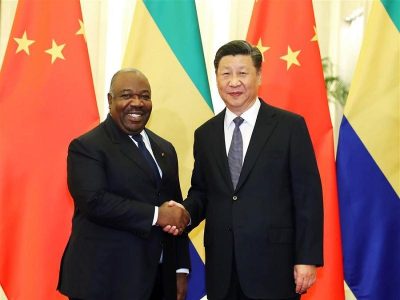Was the Gabon Coup d’état Driven by Anti-Imperialist Sentiment?

All Global Research articles can be read in 51 languages by activating the Translate Website button below the author’s name.
To receive Global Research’s Daily Newsletter (selected articles), click here.
Click the share button above to email/forward this article to your friends and colleagues. Follow us on Instagram and Twitter and subscribe to our Telegram Channel. Feel free to repost and share widely Global Research articles.
***
This week’s military coup in the Central African country of Gabon against long-serving President Ali Bongo Ondimba, who’s been in office since 2009 after succeeding his father who ruled for 42 years from 1967-2009, is being hailed by many non-Western observers as the continent’s latest anti-imperialist victory. They drew comparisons to the spate of West African coups in Guinea, Mali, Burkina Faso, and most recently Niger to reach their conclusion that this former French colony is rising up against Paris too.
While it’s true that the optics extend credence this claim, and France does indeed have a wide range of economic interests in Gabon alongside basing several hundred troops there, it’s arguably premature to connect that country’s latest regime change to this trend. There are three reasons to be skeptical:
1) Interim President General Brice Clotaire Oligui Nguema is considered close to the US;
2) economic factors are more significant than geopolitical ones in Gabon; and
3) the country has close ties with China.
Beginning with the first, reliable Russian telegram channel Rybar cited their French sources to report that the US had been cultivating Oligui to replace Bongo. The timeline was unexpectedly pushed up to seize the political initiative before latent socio-economic processes threatened to spiral into another bonafide anti-imperialist revolution. This aligns with the “Amerafrique” model described here in mid-August and the Associated Press’ report about the flawed elections being a “smokescreen” for the coup.
Segueing into the second reason, Gabon has one of the highest GDP per capita in Africa due to its natural resource wealth and small population, though one-third of its people live in poverty because of the Bongo family’s corruption. Interestingly, 30% of its trade surplus comes from China according to the International Trade Center. The Observatory for Economic Complexity’s data confirms this, and CGTN declared several months ago that China has been Gabon’s top trade partner for nine consecutive years.
The aforementioned announcement leads to the last reason since it was prompted by Bongo’s trip to China in April. He and President Xi, who described his Gabonese counterpart as “an old friend”, agreed to elevate bilateral ties to a comprehensive strategic partnership. The Chinese Foreign Ministry published a detailed report about their talks that can be read here and is worth reviewing for those who are surprised at just how close Gabon had grown to the People’s Republic under Bongo’s rule.
These three points cast doubt on the conclusion that Gabon’s latest regime change was driven by anti-imperialist sentiment unless the interim military authorities condemn France and/or take tangible action to disengage from it such as by demanding the expulsion of its armed forces. Until then, it’s plausible that this was either a purely domestic affair driven by economic factors or an American attempt to preempt a bonafide anti-imperialist revolution, but hopefully average people will benefit in any case.
*
Note to readers: Please click the share button above. Follow us on Instagram and Twitter and subscribe to our Telegram Channel. Feel free to repost and share widely Global Research articles.
This article was originally published on Andrew Korybko’s Newsletter.

